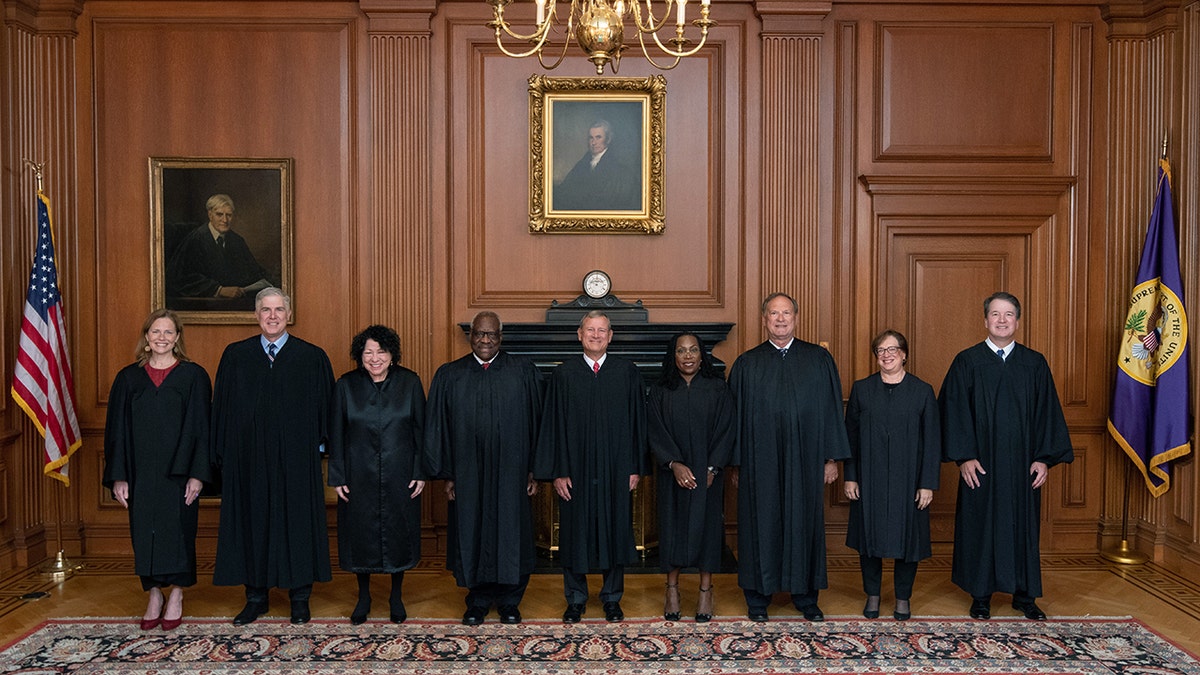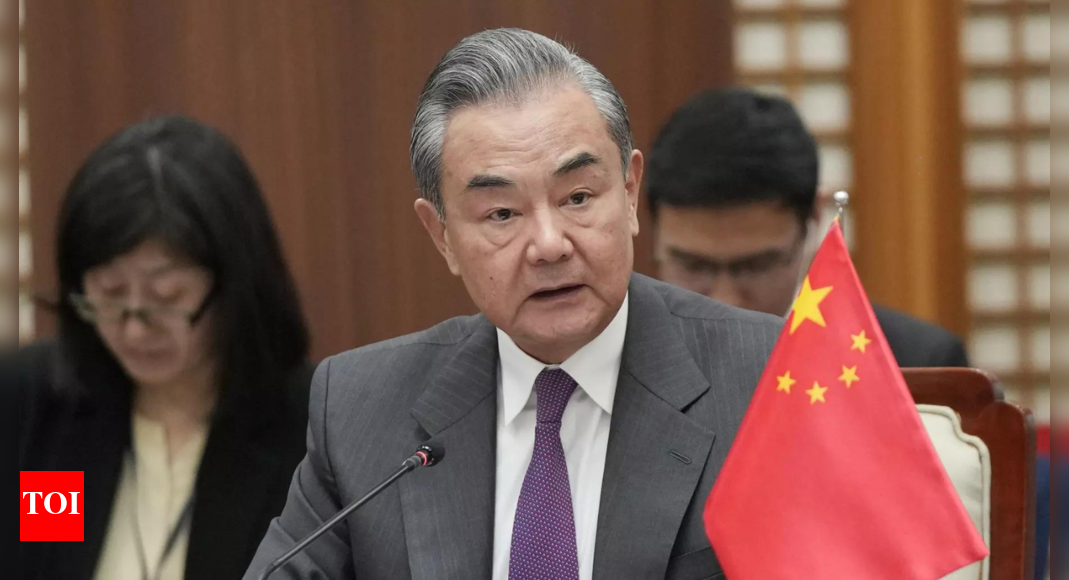Two Supreme Court Justices: Alito And Roberts' Influence After Two Decades

Table of Contents
<meta name="description" content="Analyze the lasting impact of Justices Alito and Roberts on the US Supreme Court over the past two decades. Explore their key decisions and ideological shifts.">
<p>For over two decades, Justices Samuel Alito and John Roberts have profoundly shaped the landscape of the US Supreme Court, leaving an undeniable mark on American law and society. Their influence extends far beyond individual cases, impacting everything from abortion rights and campaign finance to healthcare and religious freedom. This article examines their two decades of influence, exploring their key decisions, leadership styles, and the ongoing debate surrounding their legacies.</p>
<h2>Justice John Roberts: The Chief Justice's Balancing Act</h2>
<h3>Roberts' Role in Landmark Cases</h3>
Chief Justice John Roberts' tenure has been defined by his attempts to navigate a deeply divided court. His role in landmark cases reveals a strategic approach aimed at maintaining a semblance of judicial legitimacy and restraint, even while presiding over a conservative majority.
- Citizens United v. FEC (2010): While Roberts joined the majority opinion significantly expanding campaign finance freedoms, his concurring opinion hinted at concerns about the potential consequences. This highlights his strategy of finding common ground while moving the Court in a more conservative direction.
- National Federation of Independent Business v. Sebelius (2012): In the Affordable Care Act challenge, Roberts' pivotal swing vote upheld the law, surprising many, though his reasoning reflected a conservative interpretation.
- Obergefell v. Hodges (2015): Roberts dissented in this case legalizing same-sex marriage, showcasing the limitations of his approach to consensus-building when facing issues directly challenging his personal ideology. The decision's impact significantly altered the legal and social landscape.
The impact of these decisions on American society is ongoing and intensely debated, illustrating the complex legacy of Roberts' judicial leadership.
<h3>The Chief Justice's Leadership Style</h3>
Roberts' leadership style is characterized by a focus on internal court harmony and maintaining the Court's institutional prestige.
- Internal Court Management: He prioritizes maintaining decorum and internal consensus within the Court, sometimes prioritizing this over strong ideological stances in specific cases.
- Relationship with Conservative Justices: While aligning with the conservative justices on many key decisions, he has also occasionally acted as a moderating force, attempting to limit the extent of ideological shifts.
- Setting the Court's Agenda: Roberts plays a key role in shaping the Court's agenda, choosing which cases to hear and impacting the direction of legal arguments.
His leadership has undoubtedly shaped the Court’s overall direction, though the extent of his influence continues to be a subject of ongoing academic and public discussion.
<h2>Justice Samuel Alito: A Conservative Voice on the Supreme Court</h2>
<h3>Alito's Key Decisions and Dissents</h3>
Justice Alito has consistently emerged as a staunch conservative voice on the Supreme Court. His opinions reflect a textualist and originalist approach to constitutional interpretation.
- Dobbs v. Jackson Women's Health Organization (2022): Alito authored the majority opinion overturning Roe v. Wade, a decision that has profoundly impacted abortion rights and sparked intense national debate. This decision represents a major victory for the conservative legal movement and is a cornerstone of Alito's legacy.
- Religious Freedom Cases: Alito has consistently sided with claims of religious freedom, often in cases involving conflicts between religious practices and secular laws. These decisions have significantly shifted the balance between religious freedom and other constitutional rights.
- Dissenting Opinions: Alito's strongly worded dissents, even when he's in the minority, often foreshadow future conservative rulings. These dissents highlight his unwavering conservative beliefs and influence the evolution of legal thought.
<h3>The Impact of Alito's Jurisprudence</h3>
Alito's jurisprudence has significantly impacted various aspects of American life.
- Abortion Rights: The overturning of Roe v. Wade has had profound consequences, triggering numerous legal challenges and sparking widespread social and political unrest.
- Religious Freedom: His decisions on religious freedom have expanded the scope of religious exemptions and shaped the debate on the separation of church and state.
- Gun Control: Alito's views on the Second Amendment have led to rulings expanding gun rights.
The social and political consequences of his decisions continue to be debated, with ongoing legal challenges and fierce public discourse surrounding their implications.
<h2>The Alito and Roberts Courts: A Comparative Analysis</h2>
<h3>Similarities and Differences in Their Approaches</h3>
While both are considered conservative justices, their approaches differ subtly.
- Judicial Philosophy: While both employ conservative legal principles, Roberts frequently demonstrates a concern for maintaining the Court's legitimacy, leading to more strategic decision-making. Alito, however, appears more consistently focused on advancing a particular conservative legal agenda.
- Voting Patterns: While they often vote together, there are instances where they diverge, particularly in cases involving the balance of power between the branches of government.
- Impact on Court Trajectory: Roberts has, despite his conservative leanings, occasionally acted as a swing vote, while Alito has been a more consistently conservative force.
<h3>The Broader Impact on American Politics and Society</h3>
The decisions of both justices have significantly influenced American politics and society.
- Judicial Polarization: Their rulings have contributed to increased polarization within the judiciary and wider society.
- Judicial Activism vs. Restraint: Their decisions have reignited the ongoing debate surrounding judicial activism versus judicial restraint, with critics accusing both justices of judicial overreach.
- Public Opinion: Their decisions have deeply impacted public opinion on several crucial social and political issues, shaping public discourse and influencing political campaigns.
<h2>Conclusion</h2>
Justices Alito and Roberts have indelibly shaped the US Supreme Court over the past two decades. While sharing a broadly conservative ideology, their approaches differ in emphasis. Roberts attempts a balancing act, prioritizing court legitimacy, while Alito champions a consistently conservative legal philosophy. Their decisions have had far-reaching consequences, profoundly impacting abortion rights, religious freedom, gun control, and the very nature of American political discourse. These two justices have become pivotal figures in contemporary American legal history, prompting enduring discussion about their legacy.
Continue exploring the lasting impact of Justices Alito and Roberts on the Supreme Court by researching their key decisions and engaging in thoughtful discussion about their legacy.

Featured Posts
-
 Philippines Resists Chinese Pressure Missile System Dispute
May 20, 2025
Philippines Resists Chinese Pressure Missile System Dispute
May 20, 2025 -
 Calendrier Pro D2 Les Defis De Valence Romans Et Su Agen Pour Le Maintien
May 20, 2025
Calendrier Pro D2 Les Defis De Valence Romans Et Su Agen Pour Le Maintien
May 20, 2025 -
 Fa Cup Rashford Scores Twice As Aston Villa Defeat Preston
May 20, 2025
Fa Cup Rashford Scores Twice As Aston Villa Defeat Preston
May 20, 2025 -
 Delving Into The Cases Of Agatha Christies Poirot
May 20, 2025
Delving Into The Cases Of Agatha Christies Poirot
May 20, 2025 -
 Familie Schumacher O Noua Membra A Familiei S A Nascut
May 20, 2025
Familie Schumacher O Noua Membra A Familiei S A Nascut
May 20, 2025
